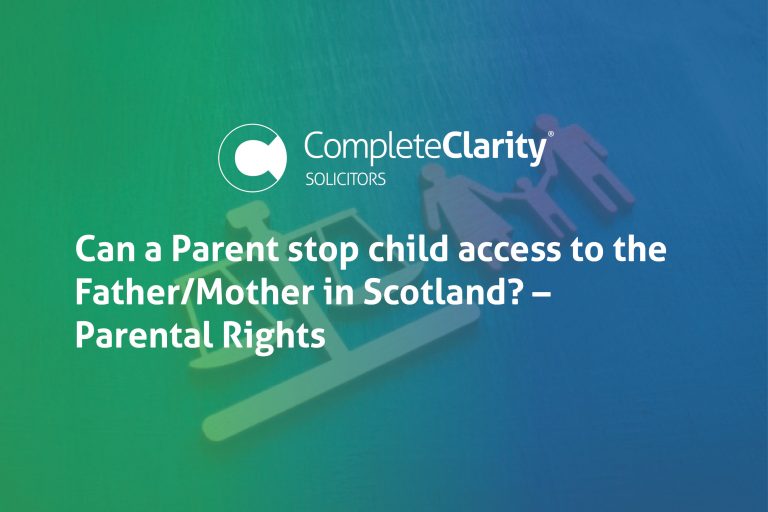“How do I appoint a legal guardian for my children and what do they do?” was the question posed in the first blog post of the “Children’s Guardians” series. The second blog post in this series addresses important factors to take into account while trying to name a guardian in your will and living in a modern household.
The UK’s fastest-growing home type is multi-family, and in many contemporary families, it’s typical for children to have different parents. When it comes to designating guardians in their will, this can raise several crucial considerations for parents:
If one of my child’s parents is still living, may I name someone to take care of them in my will?
To put it simply, yes. Unless the court has removed them, each parent will normally have parental rights and responsibilities (PRRs) about their child. As a result, each parent may designate a beneficiary to whom they want to assign their PRRs upon death. In Scotland, parents have their wills, and the guardian they designate may be named either right away upon their passing or after the passing of both parents. If the designated guardian accepts the appointment, they will instantly become the PRRs upon the death of the parent without the need for a court hearing.
When one parent passes away, it’s common for the surviving parent to be happy to give their child exclusive custody. A parent may, nevertheless, want to designate a guardian to assume their PRRs and work in tandem with the surviving parent for a variety of reasons. This could consist of:
- If the child’s parents were not together, the guardian might be chosen to help raise the child by the wishes of the departed parent and might also be able to guarantee that the child will continue to communicate with the parent’s relatives.
- In cases where the surviving parent is experiencing mental illness, or physical health issues, or needs assistance with childcare, having a second party who can help raise the child and exercise PRRs may be beneficial.
- If a parent wants to make sure that the guardian stays in contact with their child after they pass away, they might want to choose a particular individual—a stepparent, for instance. When a child lives with a stepparent and is used to having them in their life, this may be especially crucial in second families.
If disagreements regarding the child arise, what happens to the guardian and the surviving parent?
Each person can activate their PRRs separately if there are two or more people who have them about the child. In general, people with PRRs should confer and come to a consensus on important matters, such as the child’s living situation and educational plan. This arrangement will often work successfully; however, a lot hinges on the guardian and surviving parent being able to communicate and come to a mutually acceptable decision. The best interests of the child should be the top priority. If the dispute still cannot be settled, a court order may be requested; however, this can be costly, time-consuming, and most significantly, upsetting for the child. As such, the relationship between the guardians should be taken into account just as much as the relationship between the guardian and the child when choosing who to choose as your child’s guardian.
What happens if my husband, after we’ve split up, names someone else as my guardian in their will?
Your child’s other parent may have named different guardians in their will without telling you, and you may not have named the same guardians if you are no longer in a relationship with them. In this case, the appointment’s effective date and who gets appointed depends on the sequence in which the parents pass away. For instance, one parent might have designated someone to work in conjunction with the surviving parent upon their death, or they might have stipulated that a guardian would only be appointed if the other parent did not survive. Here, the guardian’s clause’s phrasing matters.
To provide the greatest outcome for the child in question, we would always advise parents to have an open discussion when choosing guardians.
Letter of wishes
A private note addressed to your designated guardians could be a helpful addition to your will, but it should be kept apart. This allows the parent to outline their goals for their child’s future and to advise the designated guardians on particular matters including the child’s general upbringing, education, and financial matters. Although a letter of wishes is not legally binding, it is a significant document that expresses the parent’s wishes and can help the guardian in their role.
Designating a guardian for your kids is a big choice. When making this decision, if you need more advice or information, please get in touch with one of our highly qualified solicitors.







